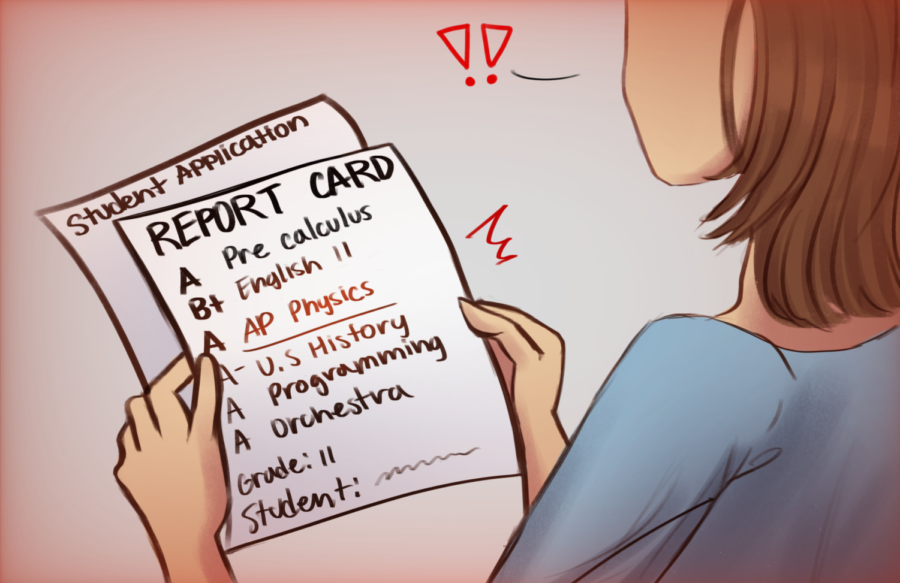Staff Editorial: AP classes’ true opportunities overlooked by students
Illustrated by Rachel Neathery
AP classes are able to catch the attention of college admissions officers, helping students stand out compared to the rest of the competition. A strong grade in an AP class typically shows that students have developed a thorough understanding of the subject.
April 27, 2023
The moment the words “Advance Placement (AP) class” come up, there’s often one thought that appears in a student’s mind: college credit. We’ve all heard the same story by now; by scoring a three, four or five on an AP exam, students may be eligible to skip a prerequisite course in college, lowering their overall tuition cost.
While this discount is undeniably useful, students often overlook the numerous advantages AP classes can provide them. By trying a few AP courses, students are able to develop skills in their personal interests, gain an understanding of college rigor and impress universities with their academic prestige.
CHS is the perfect school for students looking to gain a college-level understanding of their favorite subjects. Among the 31 APs available, students can take, for example, AP Lang to sharpen their writing and analytical skills; AP Physics to further their interest in engineering; or AP Psychology if pursuing counselor or therapy jobs.
AP courses also stretch beyond typical academic subjects. For instance, musically-driven students can take AP Music Theory, which, as CollegeBoard describes, helps with features such as “pitch, scales and keys, rhythm and other musical concepts.”
Another major upside with AP courses is that they aren’t just teaching high school-level content; they provide an introduction to the rigor of early college courses. APs typically have a heavier emphasis on note-taking, projects and faster-paced scheduling due to the accelerated curriculum, all of which reflect the work seen in many first-year college classes, according to The Princeton Review.
To account for this rigor, APs also provide another boost in the form of a one-point GPA bump. Getting an A in a regular or honors class awards students with a 4.0 and 4.5 respectively; however, students who receive an A in an AP will earn a 5.0. This bump only affects the cumulative GPA, and not the actual grade; for example, if a student gets a B in an AP, the grade will remain unchanged.
Finally, for students looking to apply to universities with lower acceptance rates, APs are going to show that students care about their academics, regardless of the amount they take, since these in-depth classes go beyond what the average student may learn.
The opportunities APs provide are certainly beneficial for future success; however, students must note the difficult standards that come with taking these courses. APs are going to require a larger time and mental commitment than a regular or honors course. As such, the expectations for these fast-paced classes will be much higher, so students need to be prepared.
Despite the difficult nature of APs, many students have found long-term success in challenging themselves. Those who are thinking of taking an AP course simply for the college credit should recognize the numerous benefits this opportunity can provide that will give them a head start on college-level academics.


